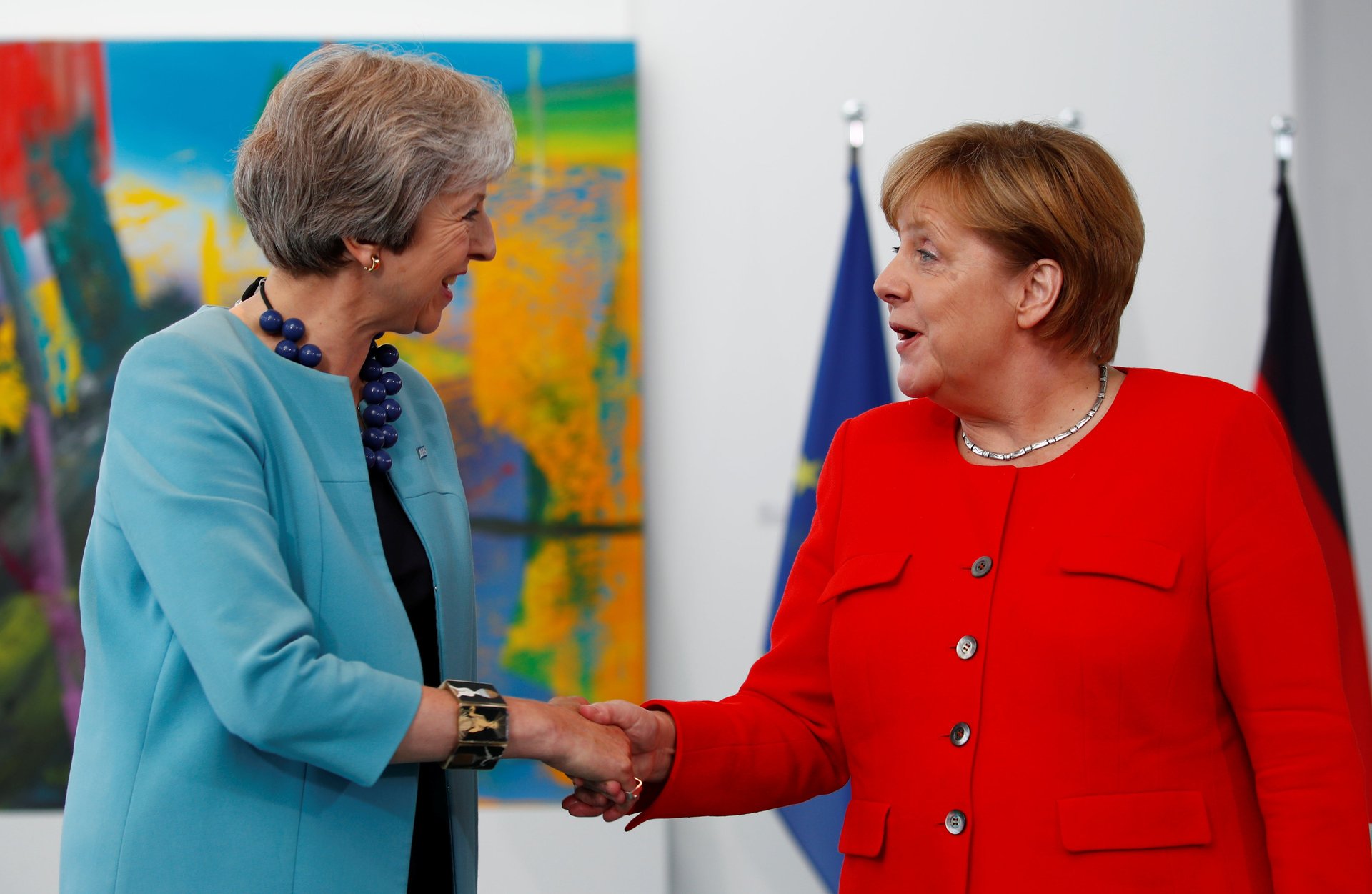Europe is trying to play catch-up to China’s dominance in Africa
Around the same time last week, Germany’s Angela Merkel and the UK’s Theresa May visited countries in Africa.


Around the same time last week, Germany’s Angela Merkel and the UK’s Theresa May visited countries in Africa.
But the timing of the visits from leaders of two of Europe’s leading economies was conspicuous as, starting today (Sept. 3), nearly all African leaders will attend the Forum of China-Africa Cooperation summit in Beijing where China is expected to, once again, dole out large loan packages.
For their part, Merkel and May had their own goals too. While they came bearing gifts, in the long run, they will be hoping for reciprocal benefits.
Merkel’s talks at each of her three stops in Senegal, Ghana, and Nigeria focused on stemming the flow of migrants heading to Europe in search of a better life. The German chancellor, with nearly a dozen German CEOs in tow, pressed for increased investment to create jobs which will offer locals viable livelihoods and disincentivize migration. And she had some success: German car giant Volkswagen announced plans to expand operations in both Ghana and Nigeria promising more investment and jobs in two of West Africa’s largest economies. But there’s a political upside for Merkel too. Having come under pressure for her handling of the growing migrant influx in Germany, reversing the trend will be crucial for her party during the next federal elections.
British prime minister Theresa May was more unabashed about the purpose of her first ever Africa tour with stops in South Africa, Nigeria, and Kenya. As Brexit looms, May is looking to “deepen and strengthen” the UK’s “global partnerships,” even if it requires busting out awkward dance moves. May signed trade deals, pledged more direct government investment and touted the UK’s private sector’s interest as well. Beyond trade, the prime minister also pledged military support to combat terror sects Boko Haram and Al-Shabaab in Nigeria and Kenya respectively.
However, platitudes about maximizing “shared opportunities” with Africa aside, it’s unlikely that increased UK-Africa trade will make up for potential Brexit losses: in 2016, UK’s trade with Kenya, South Africa, and Nigeria combined was less than 2.5% of the value of its trade with the European Union. In contrast, China-Africa trade—albeit one-sided—rose 14% last year to $170 billion.
The UK prime minister’s message of “partnership” and sharing “mutual benefits” during her trip was a veiled reference to China’s model on the continent which has been criticized as “debt-trap diplomacy.” But it will take more than impassioned statements to make up for the head-start China currently enjoys. As Africa has increasingly looked East rather than West over the past decade, Europe is ultimately playing catch-up to the Asian superpower as it continues to heavily invest in trade, infrastructure, and even security across the continent.